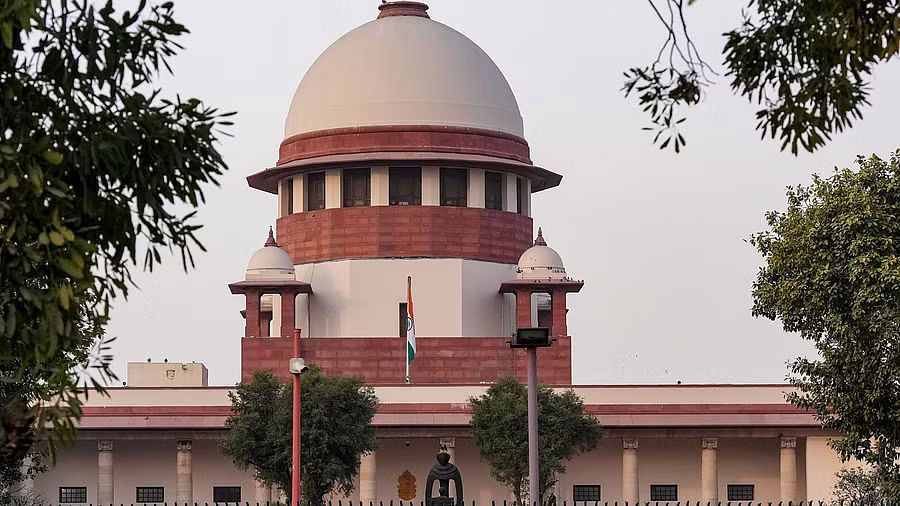
The Supreme Court of India.
Credit: PTI File Photo
New Delhi: The Supreme Court on Monday rejected a plea by an NGO which sought directions to the Centre to start a 24-hour Sindhi language channel on Doordarshan.
A bench of Chief Justice of India D Y Chandrachud and Justices J B Pardiwala and Manoj Misra said no citizen can say that in pursuit of my fundamental right to set up a separate television channel as there may be other means to preserve the language.
"Can a citizen under Article 29 of the Constitution say that there must be a mandate to start a separate channel to preserve my language? There are other means of preserving a language. Create more awareness,” the bench told senior advocate Indira Jaising, appearing for petitioner, NGO Sindhi Sangat.
The counsel contended the most important means to preserve anything is through public broadcasting.
Disagreeing to her contention, the bench said, “Not necessarily. Because that would depend on the profile of the community. If a community which is predominantly rural, public broadcasting would be a very important means. If the communities are urban, for instance, the Sindhis, I am not sure and I must not be misconstrued, are basically in the urban or semi-urban areas.”
Jaising said the Sindhis are a displaced community and where would a refugee community go?
“They own no land to call their own," Jaising said, also pointing she and late Ram Jethmalani hailed from the same village in Sindh, now in Pakistan.
The bench, however, emphasised public broadcasting by having an earmarked channel is one means of preserving language and culture, there could be other means as well.
Referring to division of States in the country in the basis of language, that this is the solitary example of a language which does not have a state. She said perhaps, it is the same with the Parsi language. Jaising said if there were to be a state called Sindh, then there would have been a channel.
The bench said that the petitioner before the high court did not challenge the Doordarshan’s policy and the prayer was only to start a separate channel.
Upon this, Jaising said that the court has the power to mould the relief, while stressing that public broadcasting is the most effective means of preserving a language.
The bench, however, said, “No citizen can say that in pursuit of my fundamental right, set up a separate television channel. There may be other means of protecting the language.”
Jaising said the duty of the state is to respect, protect, and fulfil fundamental rights, and it can be done in multiple ways.
“But you cannot deny that one of the ways of doing it is through public broadcasting. And, public broadcasting has a legitimacy, which a private broadcasting may not have…there is a duty cast on the state to protect, fulfil, and respect rights of linguistic minorities,” she said.
The bench, however, rejected the plea challenging an order of the Delhi High Court of May 27, which dismissed a plea.
Terming the plea as "misplaced," the High Court had said the decision of Prasar Bharati not to start a 24-hour Sindhi language channel is based on an intelligible differentia.
